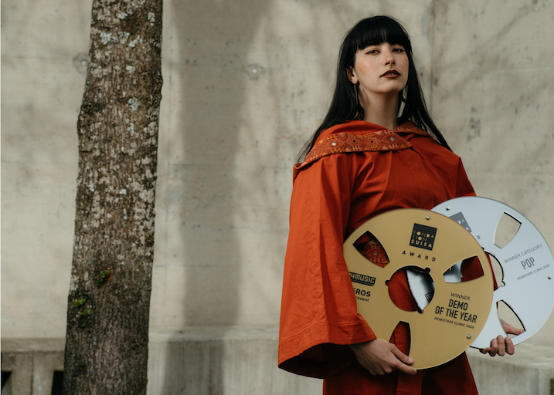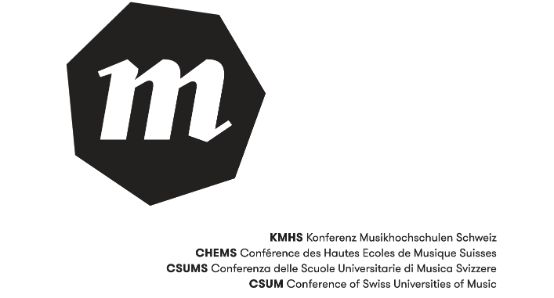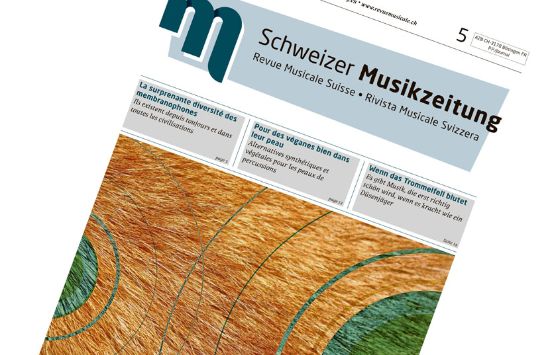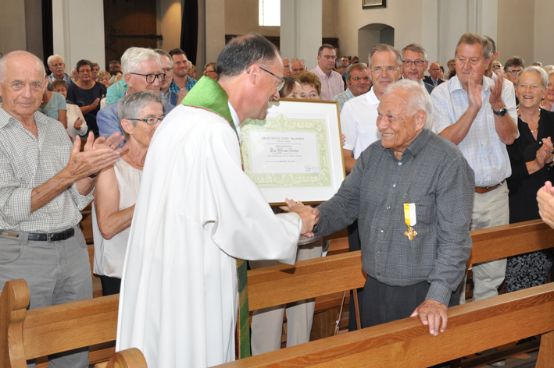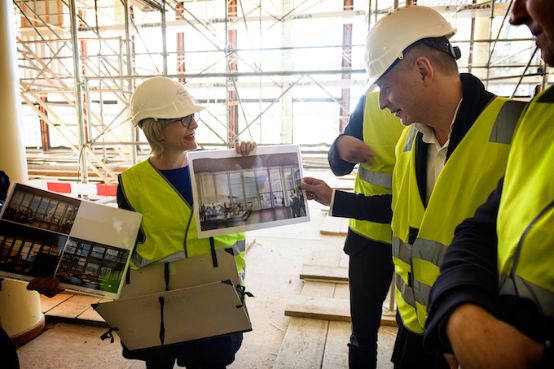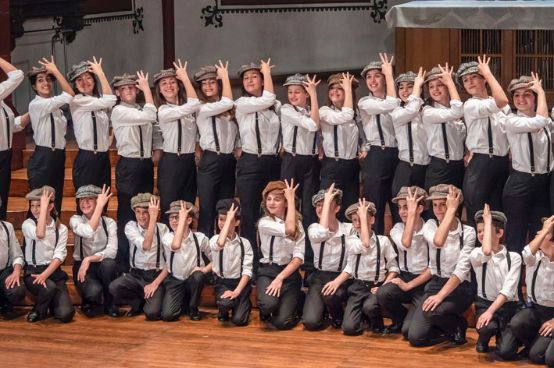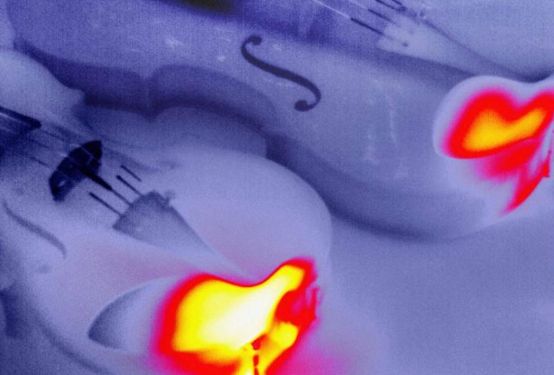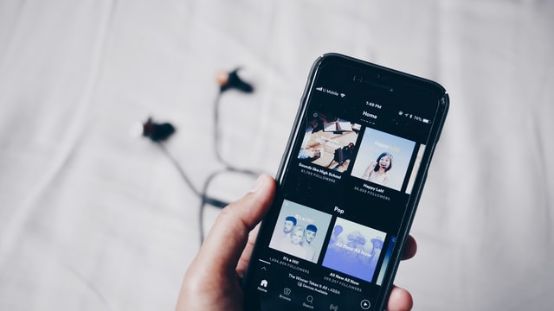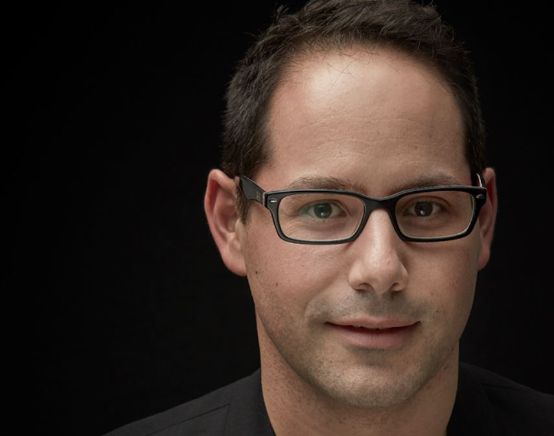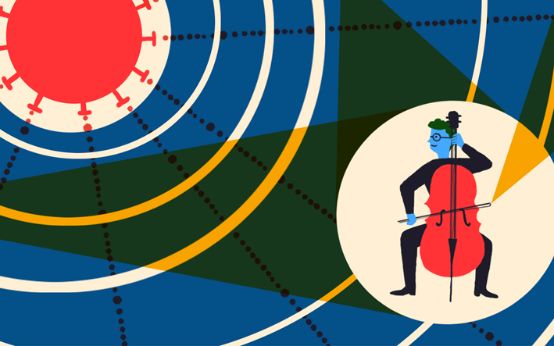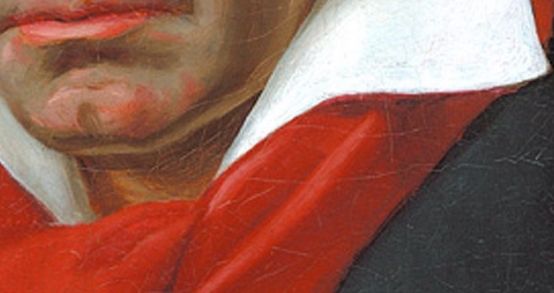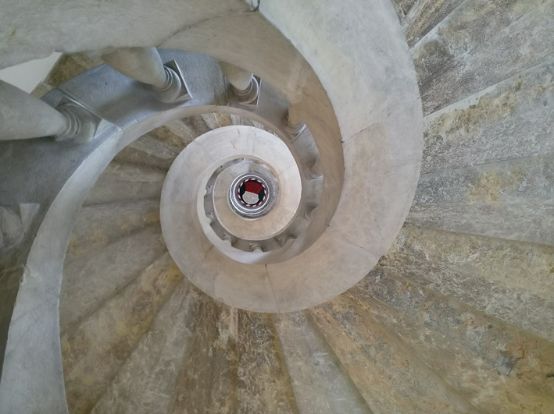Susanne Abbuehl - Everything happened in quick succession: on March 11, jazz bachelor concerts took place. We were relieved that we were able to meet the federal government's requirements at the time and that the students were able to play the concerts as planned: "Carte Blanche" concerts shortly before completing their Bachelor's degree, with the opportunity to show where they could go artistically. On Friday, March 13, we learned that we would have to forego in-person classes until further notice. Within a week, we changed the entire course of study. Listening, interacting, sound nuances and room acoustics - how was studying music at a distance supposed to work? Of course, blended learning was already a topic before Covid-19, and many lecturers also interacted with students digitally. However, this was always in addition to face-to-face teaching, which we all regarded as an irreplaceable core element.
In recent weeks, teaching has had to be reinvented. We were very well supported by the university management: the information was transparent and always followed the federal government's instructions promptly. Great commitment and concern were and are palpable. We are doing everything we can to stay in contact, even at a distance, so that we can continue to provide students with good support. At times, this brings issues into sharper focus that would otherwise be resolved in other ways: Practice opportunities, for example, or the financial viability of students. Here, too, we are looking for solutions and offering support options. At a distance, it became more important than ever to adapt teaching to the situation: Playing together at the same time was difficult during live broadcasts, but there was now an opportunity and space to make music unaccompanied and to record oneself more frequently.
Contact at a distance - supervising students
In blogs, input videos and exchanges with each other, we learn from each other and focus on what nevertheless is possible. In the process, approaches to a new methodology and a more binding self-evaluation of the students become noticeable. Teaching becomes a joint project: how do we achieve this? together? Hans-Jürg Rickenbacher, vocal coach in the classical music profile, calls the new format of his lessons HomeVoice. The student council, which was already active and innovative in sharing ideas before the virus crisis, uses all available platforms and immediately created a forum and archive in the form of a blog. Chiara Schönfeld, a Master's Performance student, also sees advantages in the variety of formats in which teaching is currently taking place. "I can work on the input videos from lecturers at my own pace and with more freedom in terms of time." She likes the fact that the lecturers show a personal style in their implementation. By sharing recordings, she has also learned to listen to herself in a more differentiated way and can better classify feedback.
The Music Library team will continue to ensure the basic supply of literature and sheet music for students, lecturers and researchers - with an electronic document delivery service, postal delivery and a wide range of media and corresponding support. Here, too, the aim is to ensure that our students are looked after (almost) as usual. Julian Dillier, Head of the Department of Music Education, says that the switch to video conferencing in management committees was abrupt, but that it works surprisingly well. The work placements pose a particular challenge. Despite school closures, not everything had to be postponed: Some students are developing new formats together with the internship teachers - a skill that will also help them later on.
Antonio Baldassarre, Head of Research and Development, is concerned with the possible impact of the Covid-19 lockdown on teaching and research. It is conceivable that new research topics will be opened up: Closeness and distance in music lessons, for example, are currently being redefined. He is also observing the creative solutions that are currently being developed in the arts and cultural industries and are generating new relevant research questions.
The topic of examinations is currently on our minds. The students rightly want a "worthy graduation", as Chiara put it. The public final concerts mark the start of their professional careers and make the many years of intensive work on artistic and musical skills audible. What insights will we take away from this intensive phase of learning? That will certainly keep us busy for a long time to come. The entrance examinations, which will take place in 2020 in a multi-stage process with video assessment and live connection, have been very positive so far: it is also possible to establish binding contact online. However, we believe that a physical presence is still essential.
Susanne Abbuehl
... is Head of the Institute for Jazz and Folk Music and a member of the Departmental Management, Lucerne School of Music.
MvO - What to do when the world falls apart at the seams? When clients and students alike despair, out of loneliness and existential fears? The KULT agency has existed at Bern University of the Arts for 16 years, enabling students to gain a foothold in the working world with performances and to think about self-marketing or portfolio careers. But suddenly the world is in a state of shock and the agency receives rejection after rejection - no more appearances at festivals, graduation ceremonies, weddings and funerals. The agency is in direct contact with various target groups from all generations. As head of the student agency, Claudia Kühne takes a proactive approach, as alternatives are urgently needed. This is both for social interaction in times of physical distancing and to support the precarious situation of many students, which is constantly worsening.
Kühne's answer is to be creative. Are there ways of continuing to play a musical serenade in a nursing home without taking a risk or putting additional strain on the nursing staff? Yes, using the telephone, which is available practically everywhere. In this way, new offers are constantly being created that can also be guaranteed in times of acute crisis. And creativity could be rewarded by acquiring new customers in this way. In addition, musicians and performers are dealing with digitalization in a new context. They have recognized the potential of digital channels. Claudia Kühne and her colleague Nicolas Wolf support them in familiarizing themselves with the technologies, be it through technical tips or by setting up their own YouTube channel. The students are suddenly confronted with questions: about the target audience, about reaching an audience, but also about building and maintaining their personal network. These questions are directly related to the work of KULT, but they take on a new relevance during the crisis. According to Claudia Kühne, the resulting formats are currently being tested and will continue to supplement the offer after the crisis. She confirms that the students have reacted very positively to her initiative and also see the "corona period" as a creative driver. Bern University of the Arts and its students can thus play an active and positive role in an unsettled society, in the here and now.
> www.kult-agentur.ch
Claudia Kühne
... is head of the KULT student agency at BFH Bern University of the Arts.
Sibille Stocker - Numerous students from the FHNW Academy of Music/Basel Academy of Music used the days off during the Basel Carnival to visit and perform in their home countries. Some of them are still stuck there. Canceled concerts, currency devaluation in their home countries, unemployment of parents who finance their studies and/or the loss of any part-time jobs are existential for many. "I am financing my studies from my savings. The devaluation of the Brazilian currency is causing these to shrink rapidly. I am very grateful for the support from the Solidarity Fund." Jazz saxophonist F. M. is one of 141 students who have applied for an emergency scholarship. Immediately after the lockdown, the first calls for help came from students in need, a solidarity fund was immediately set up at the Foundation for the Promotion of the Basel Music Academy and an appeal for donations was launched. Within a few days, around 70 people from the music academy's environment and the ranks of lecturers at the Hochschule für Musik responded to the appeal and donated more than 190,000 francs. All applications were reviewed before Easter and 121 emergency scholarships were paid out. A great campaign!
Unforeseeable consequences for the music market
"All my concerts and also my projects with Swiss and Mexican musicians have been canceled. The situation in my home country is catastrophic. I am very worried." The drummer E. S. also received a grant from the solidarity fund. However, what weighs far more heavily on him than the financial bottleneck is the uncertain (cultural) future. The Spanish quartet Kebyart, four young saxophonists who are currently having to hold out in the "confinamiento" in various Catalan cities, describe it as follows: "The shutdown of the music market is one thing, the other is the uncertainty about what will happen in the longer term to performances that have already been programmed. This paralysis, this being put on standby and not knowing for how much longer, it's grueling." For jazz and chamber musicians, practising together in times of lockdown is largely impossible, the online latencies are too great, even with the latest technical media. F. M. puts it in a nutshell: "We no longer have any togetherness, jazz is interaction between musicians and with the audience. In these times, we are all losing our unique moments."
Thinking up new things, arranging, reflecting, learning
The situation of these six musicians from the Hispano-Portuguese region is exemplary for many of their musician friends and fellow students. They are worried about their loved ones, the future of their studies and new professional uncertainties. But they are all working hard to deal creatively with the current situation. The "musicalthoughts4u" campaign organized by the FHNW Academy of Music/Basel Academy of Music provides an opportunity to do just that. The students were asked to use all their artistic and creative potential for innovative music videos and to produce them themselves while maintaining social/physical distancing - cash prizes await the winners so that these efforts can be meaningfully acknowledged in times of financial scarcity. In this way, the students at the Basel University of Music may be able to offer those suffering from the coronavirus crisis a virtual replacement for the sorely missed unique moments give.
> www.fhnw.ch/musicalthoughts4u
Sibille Stocker
... is head of the Institute for Communication at the FHNW School of Music/Music Academy Basel.
In the next issue, we will attempt to take a closer look at the new teaching methods that are being used at Swiss music academies due to the coronavirus crisis.
